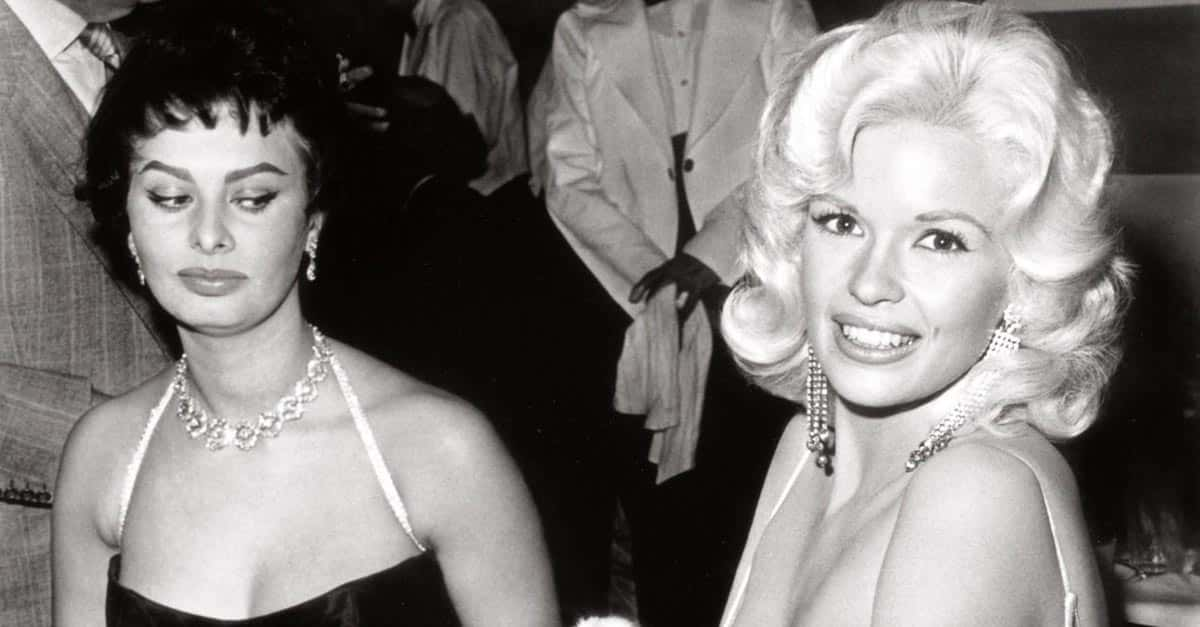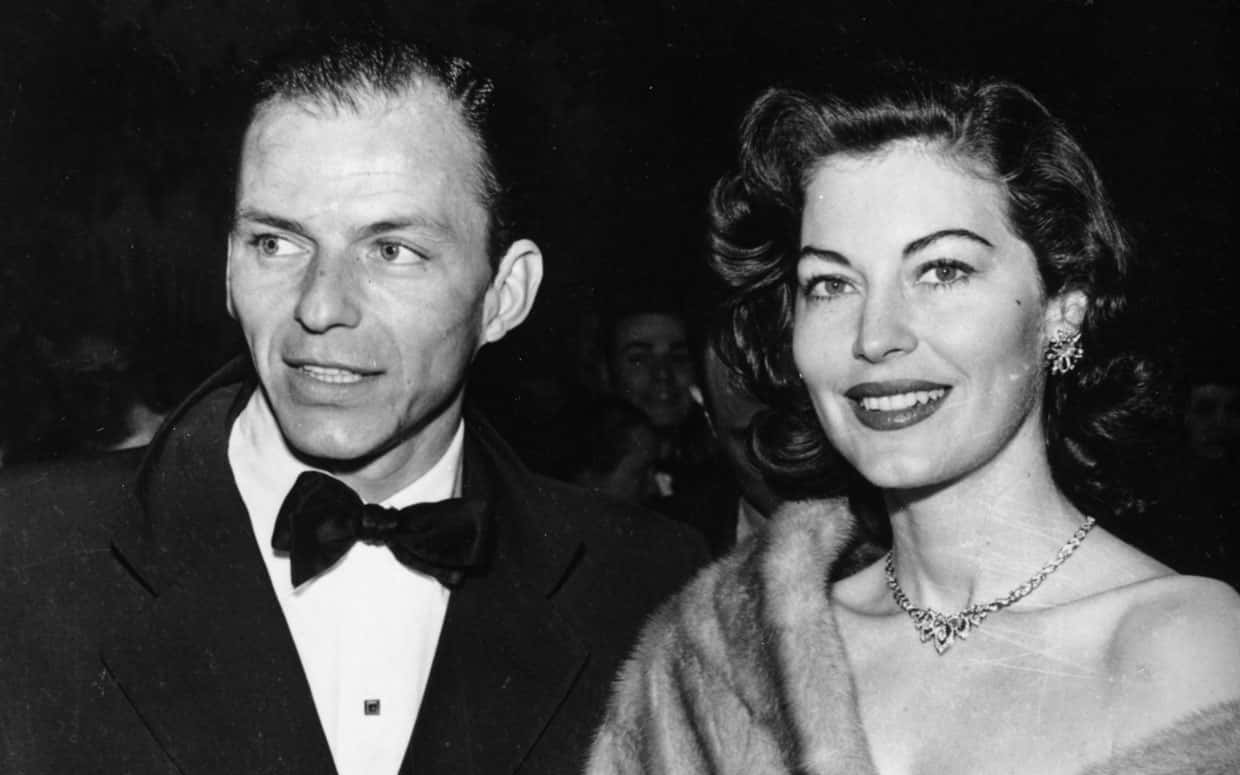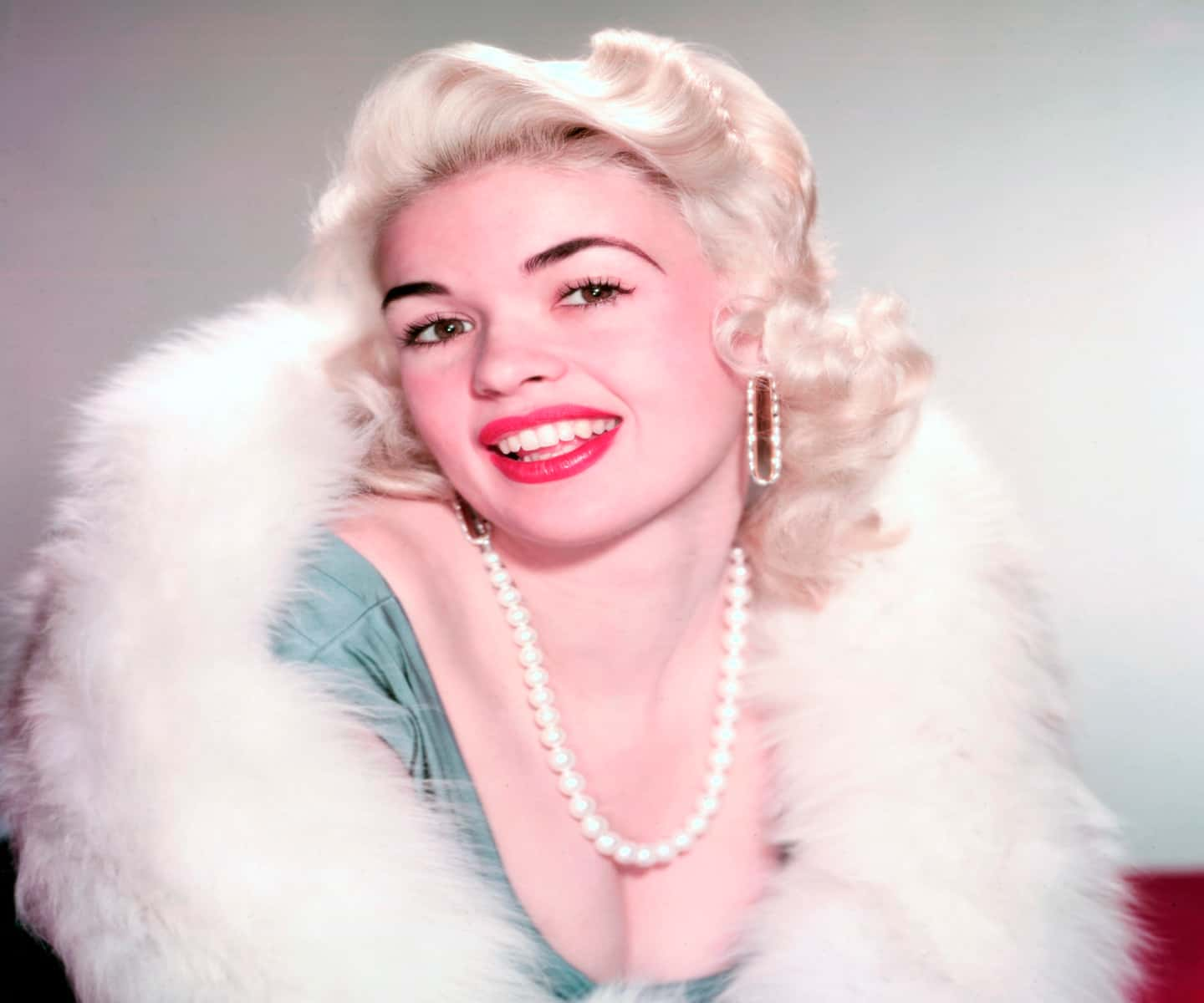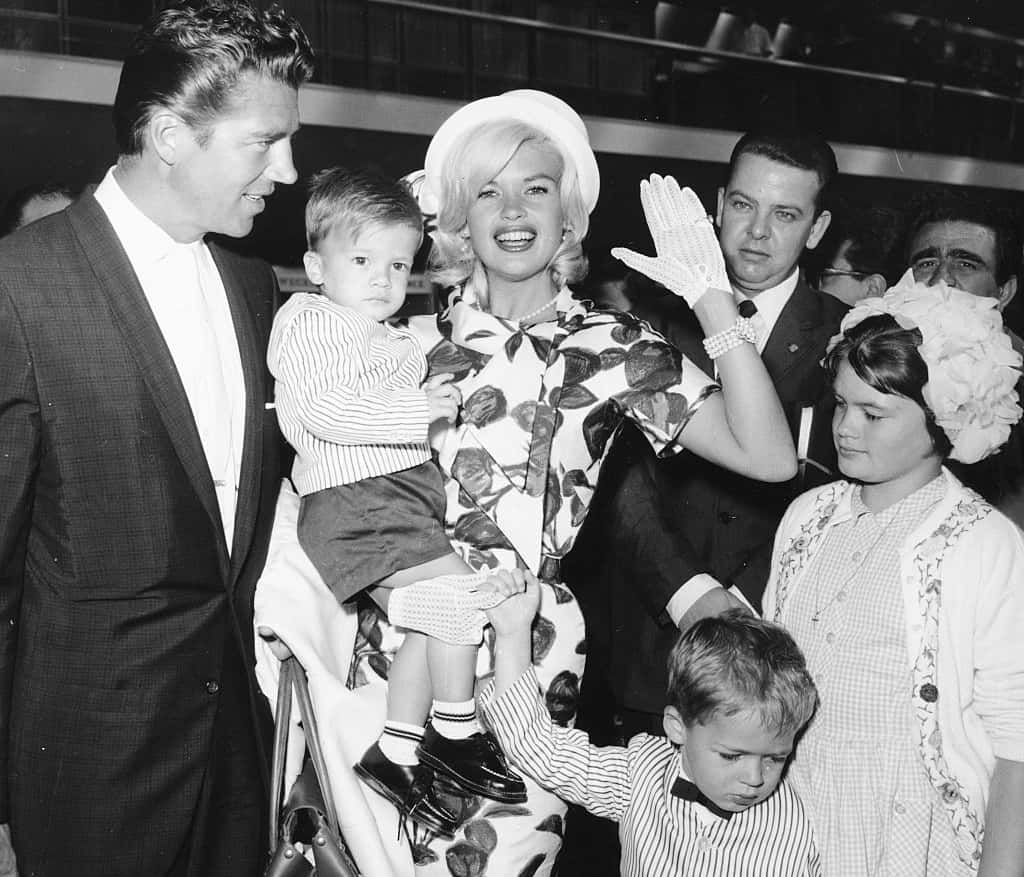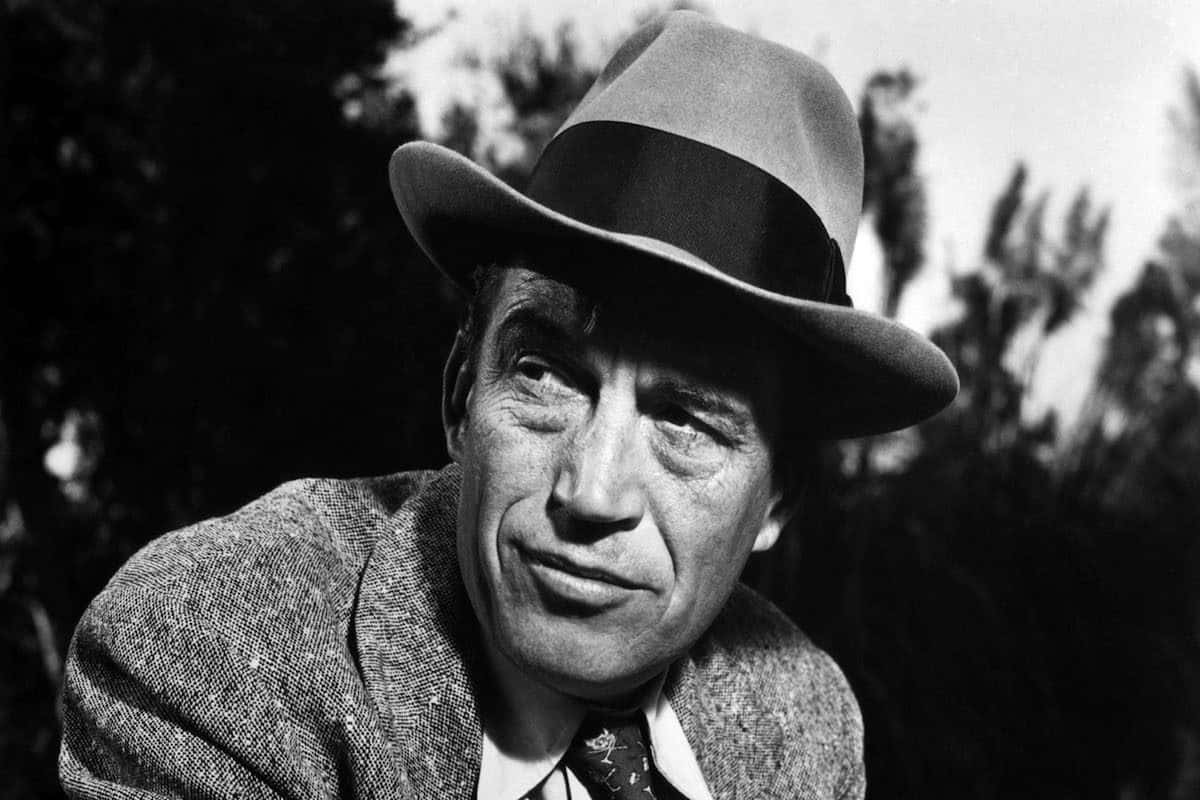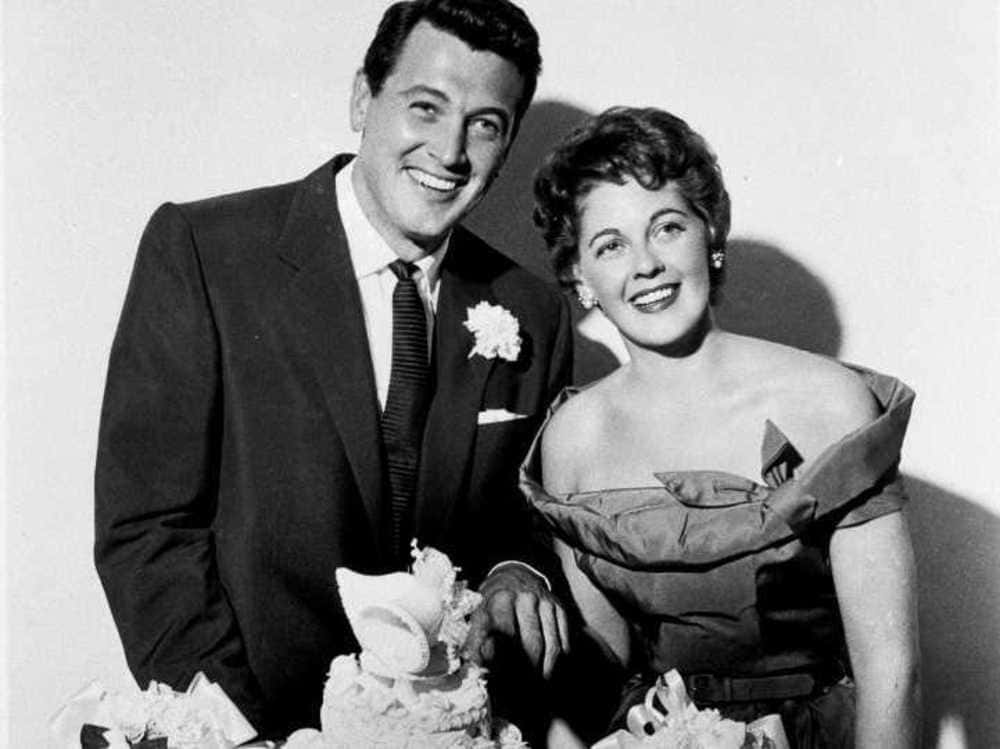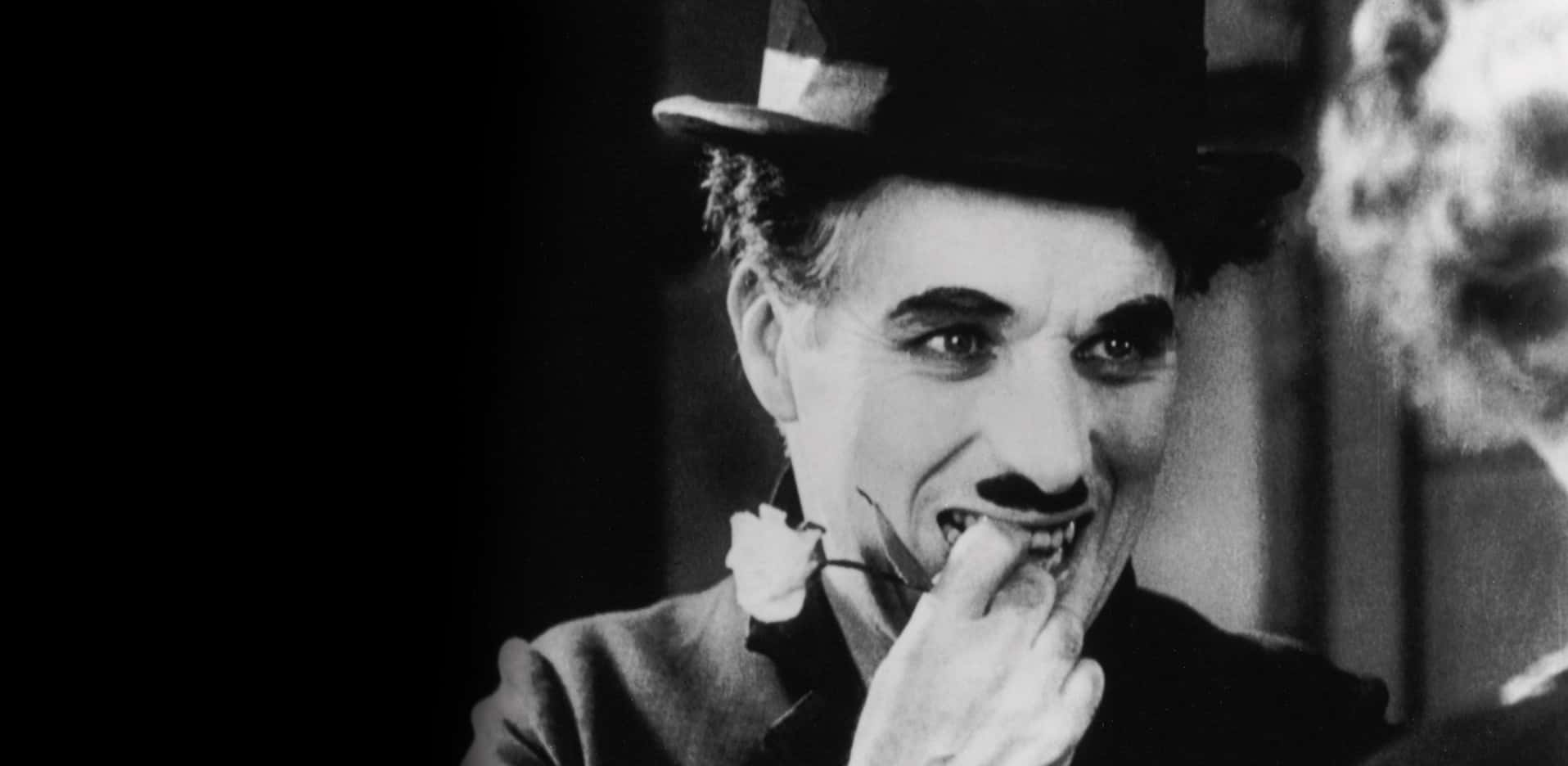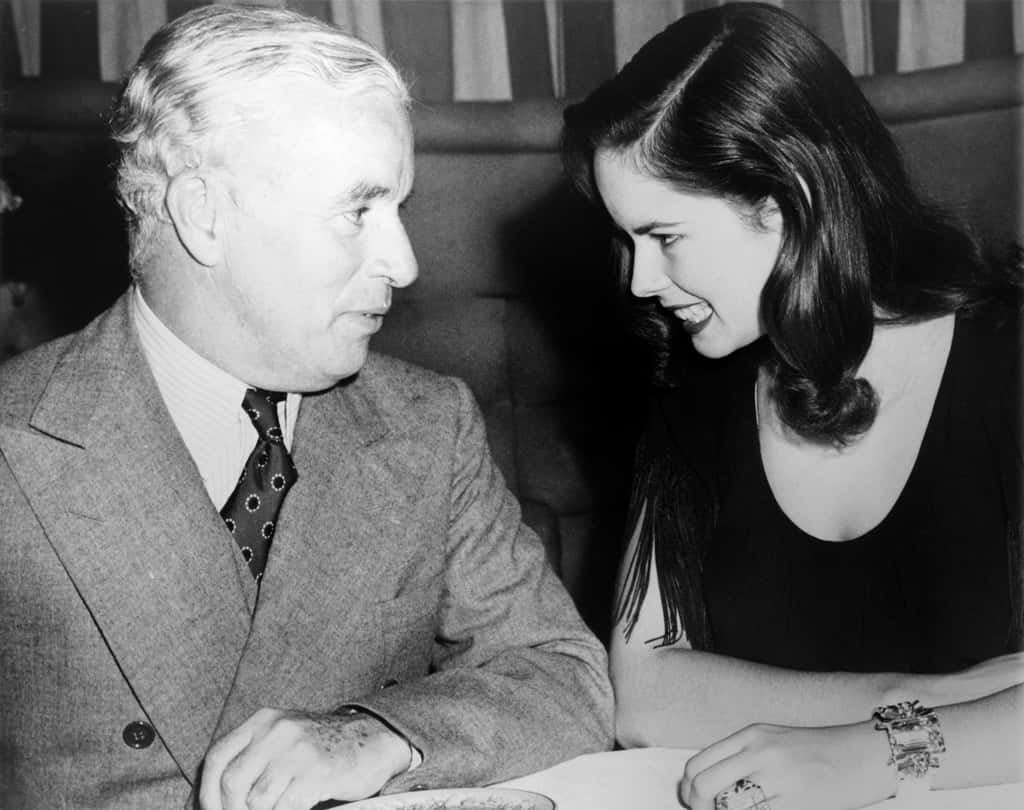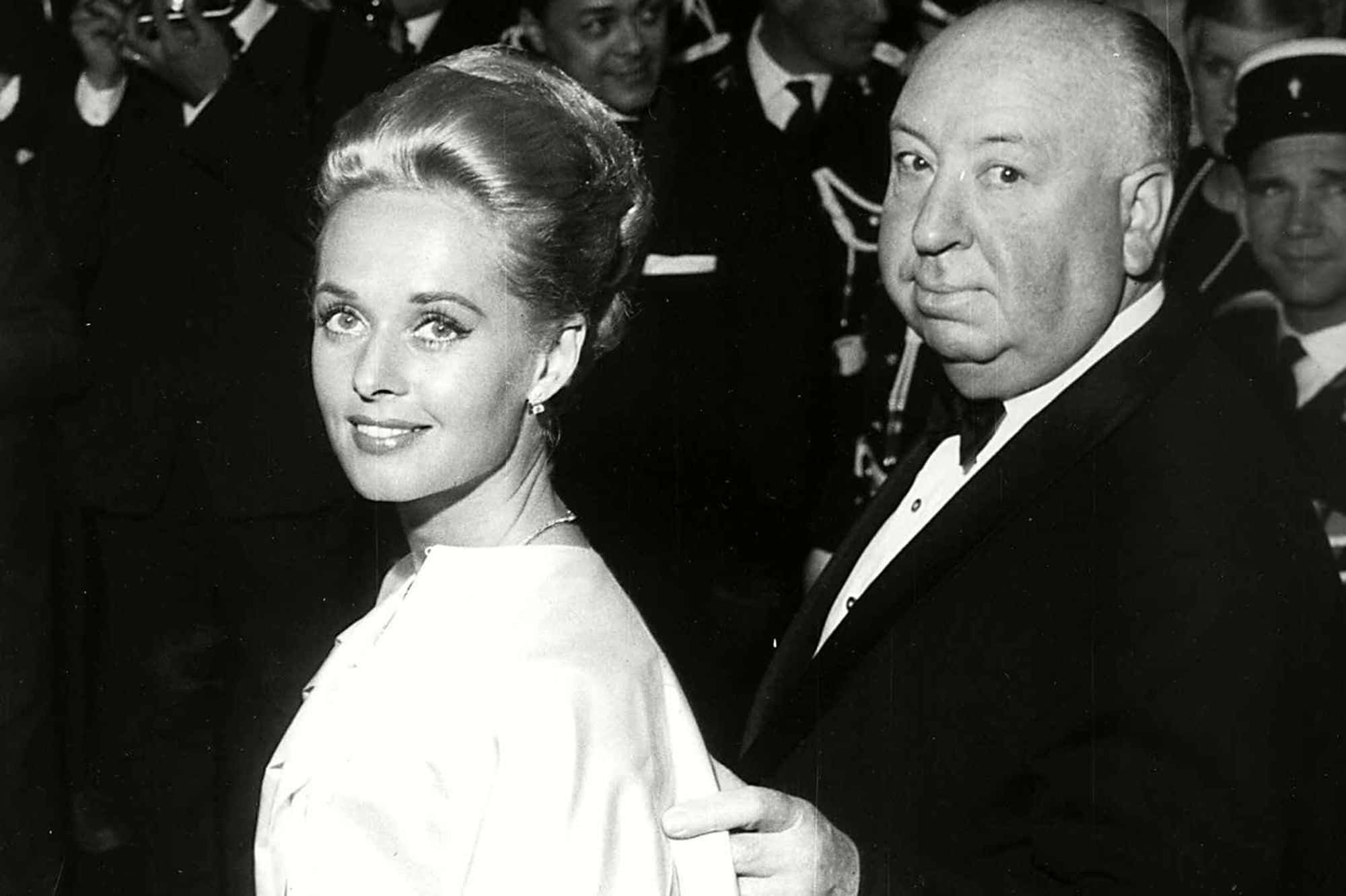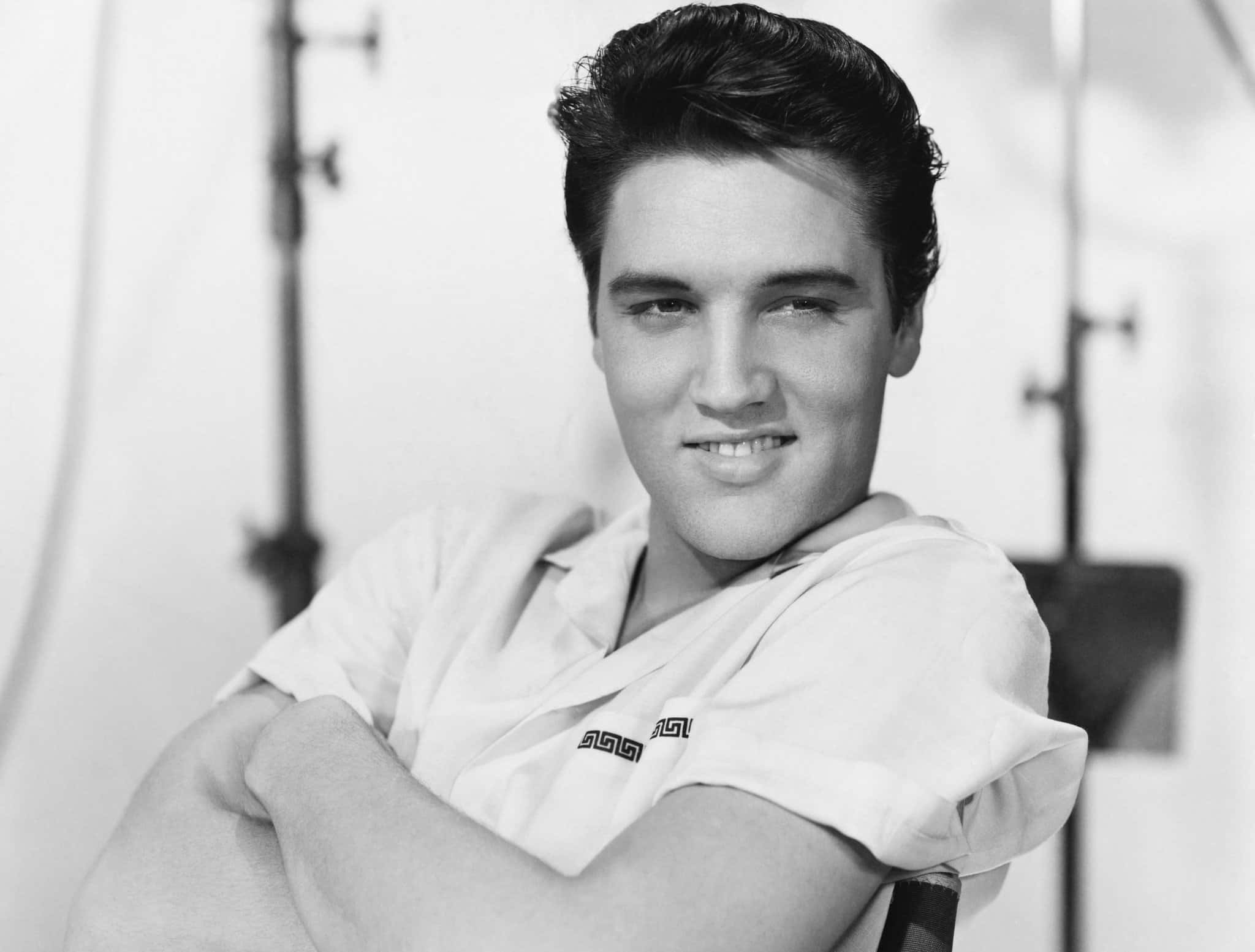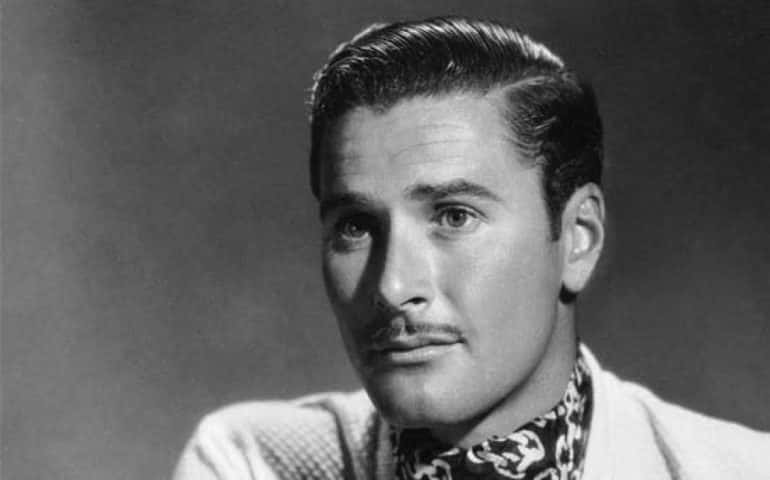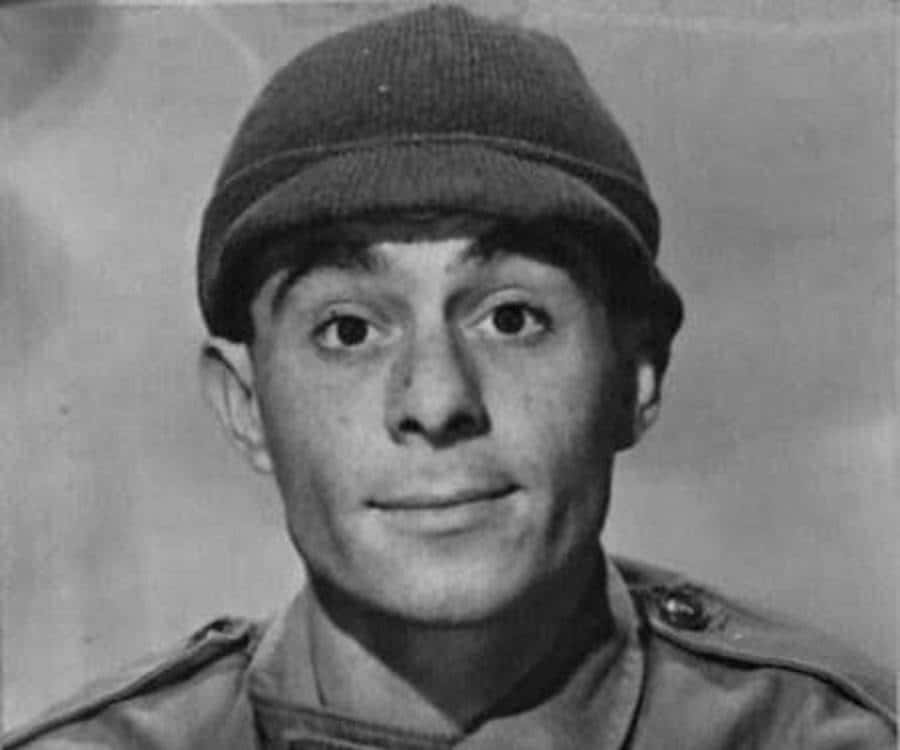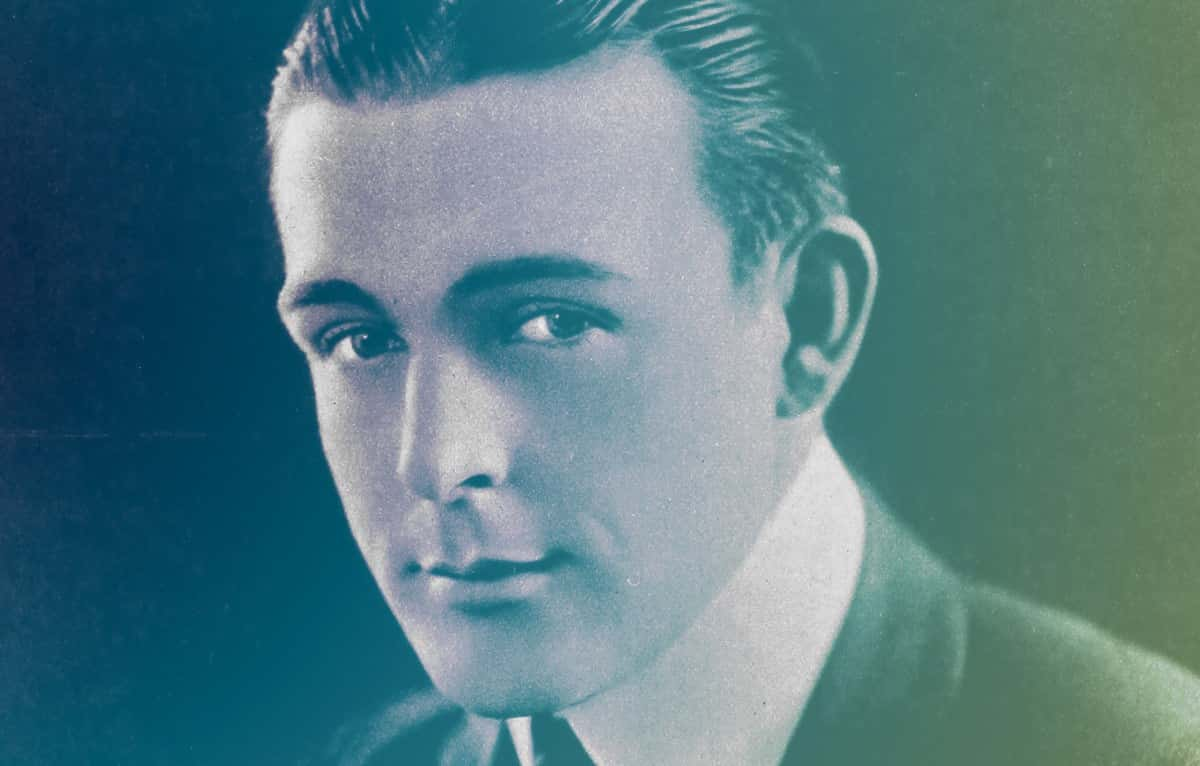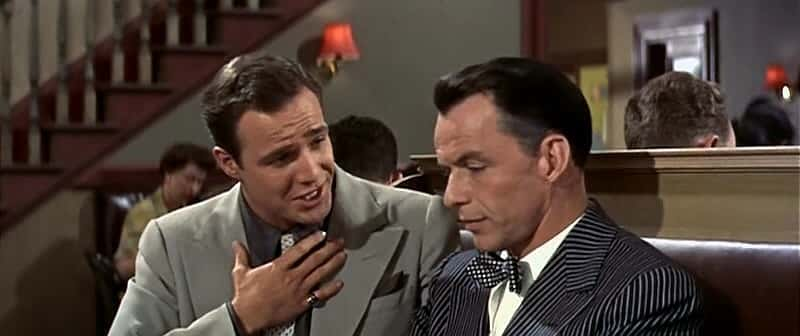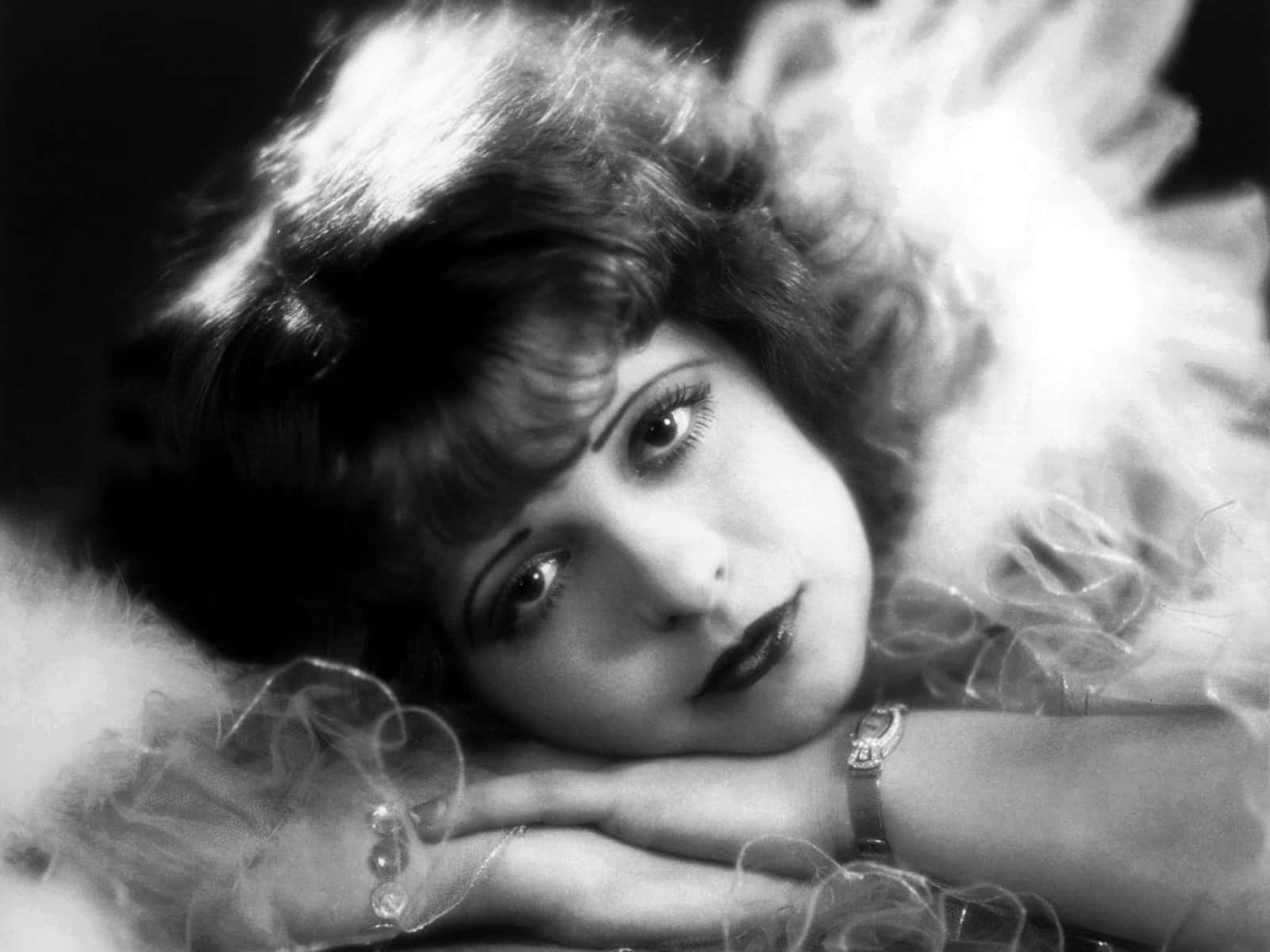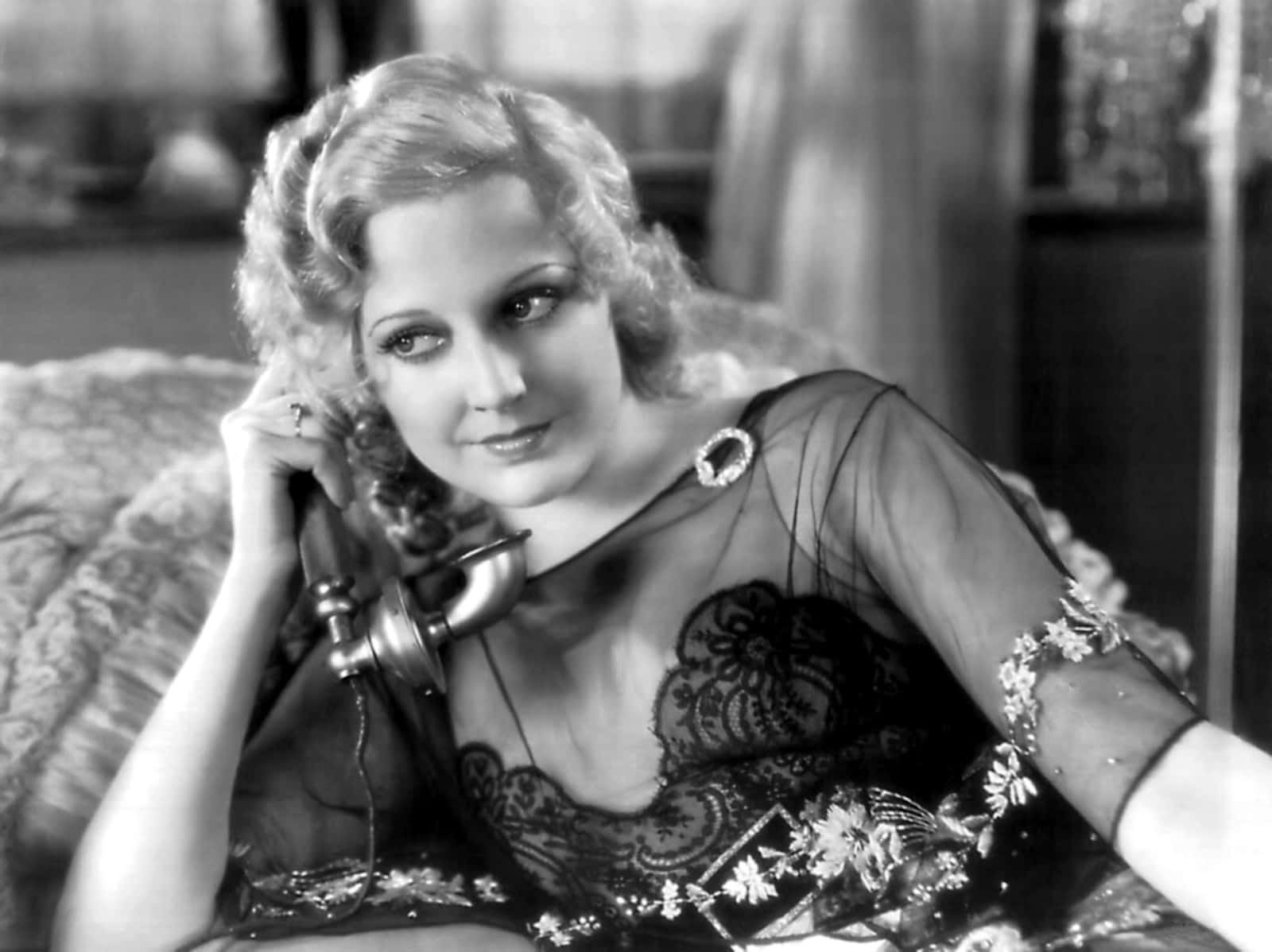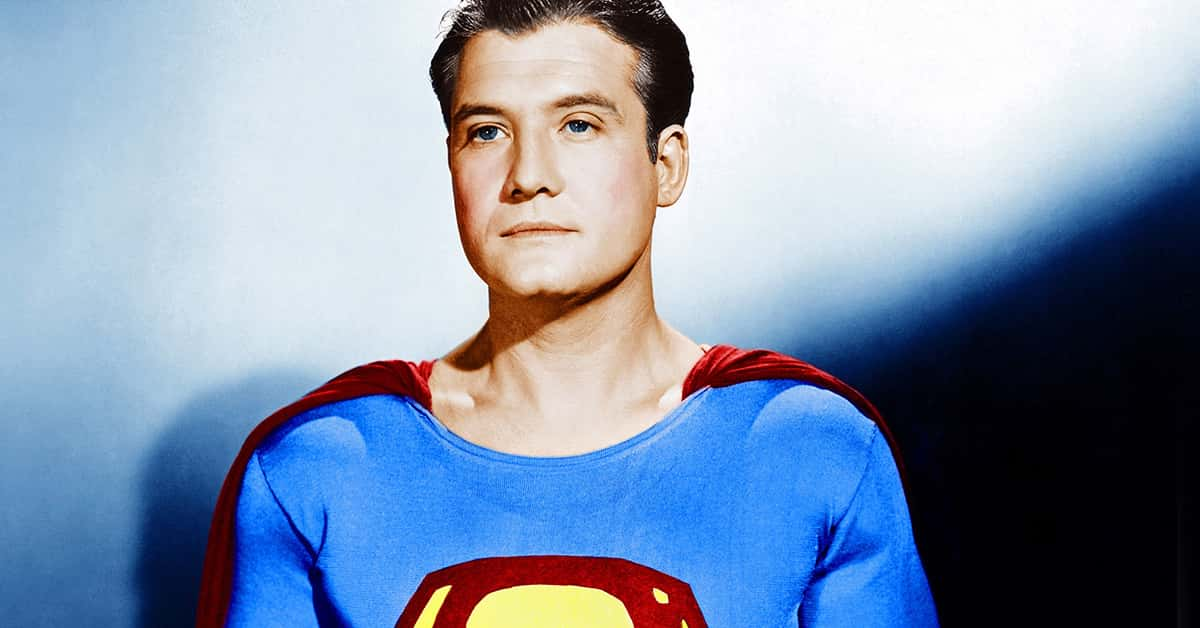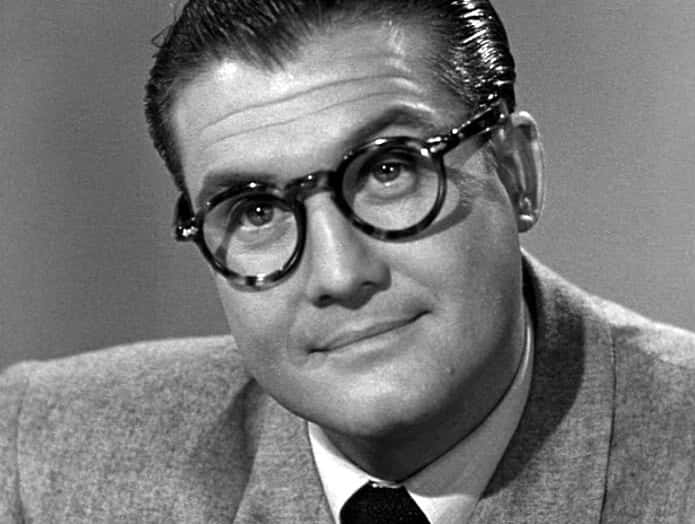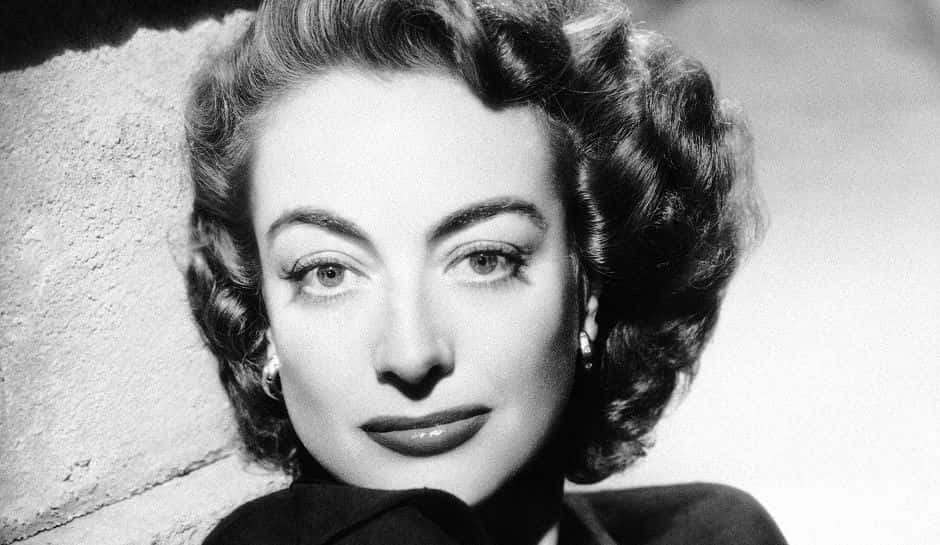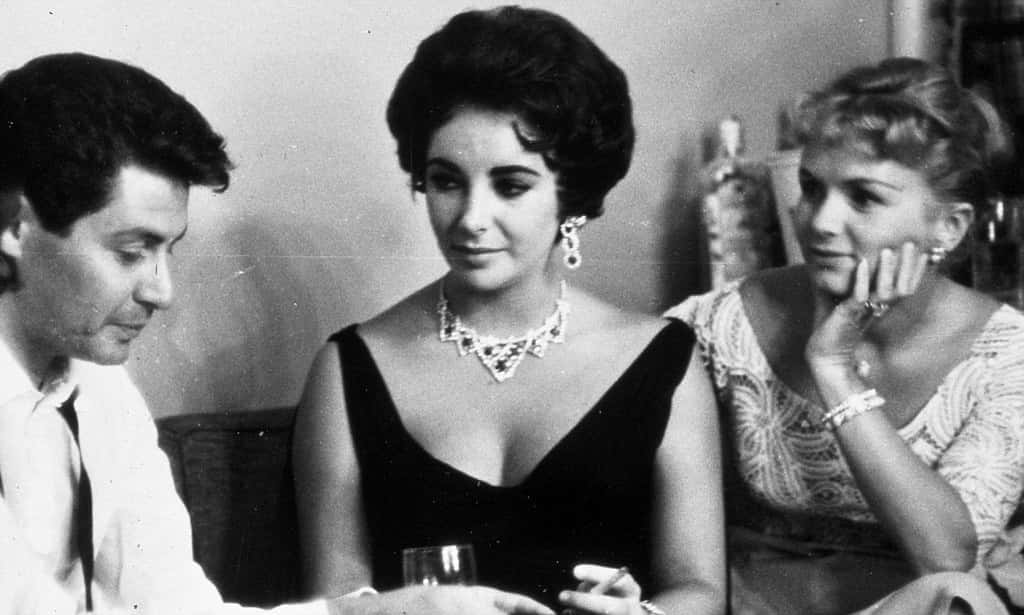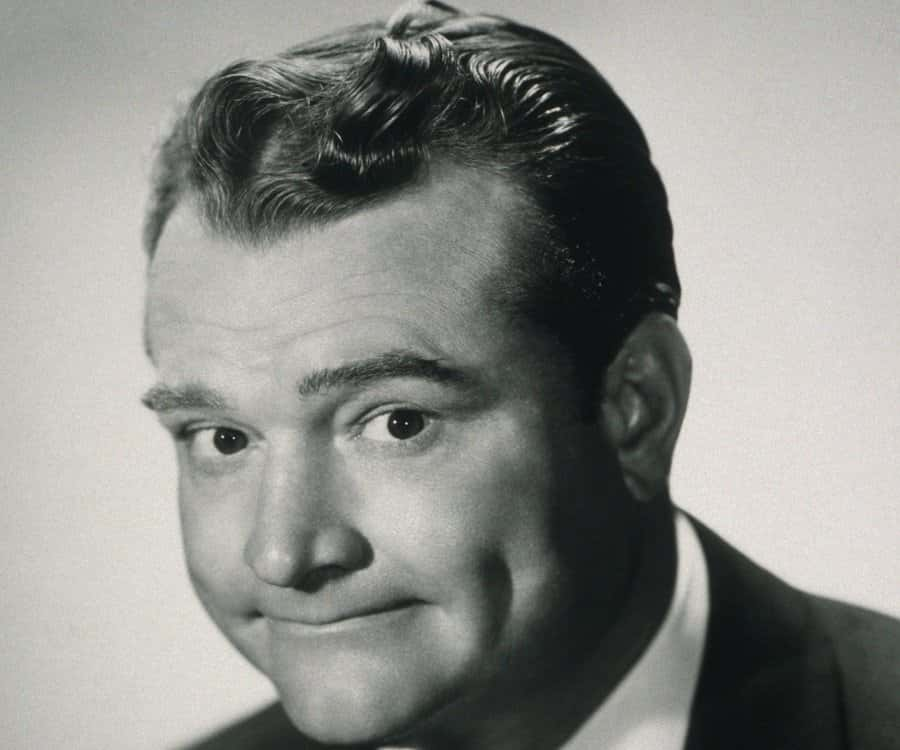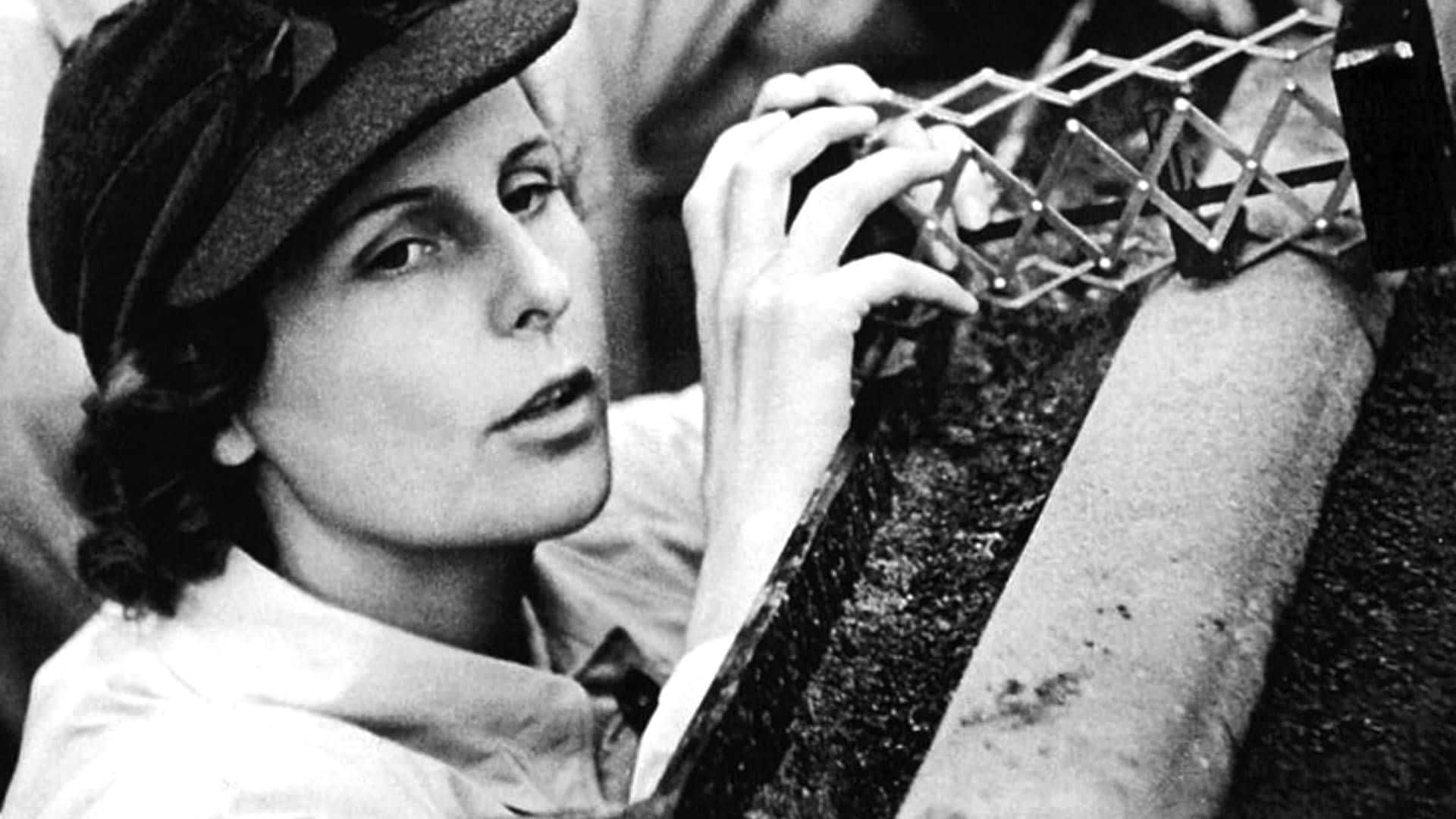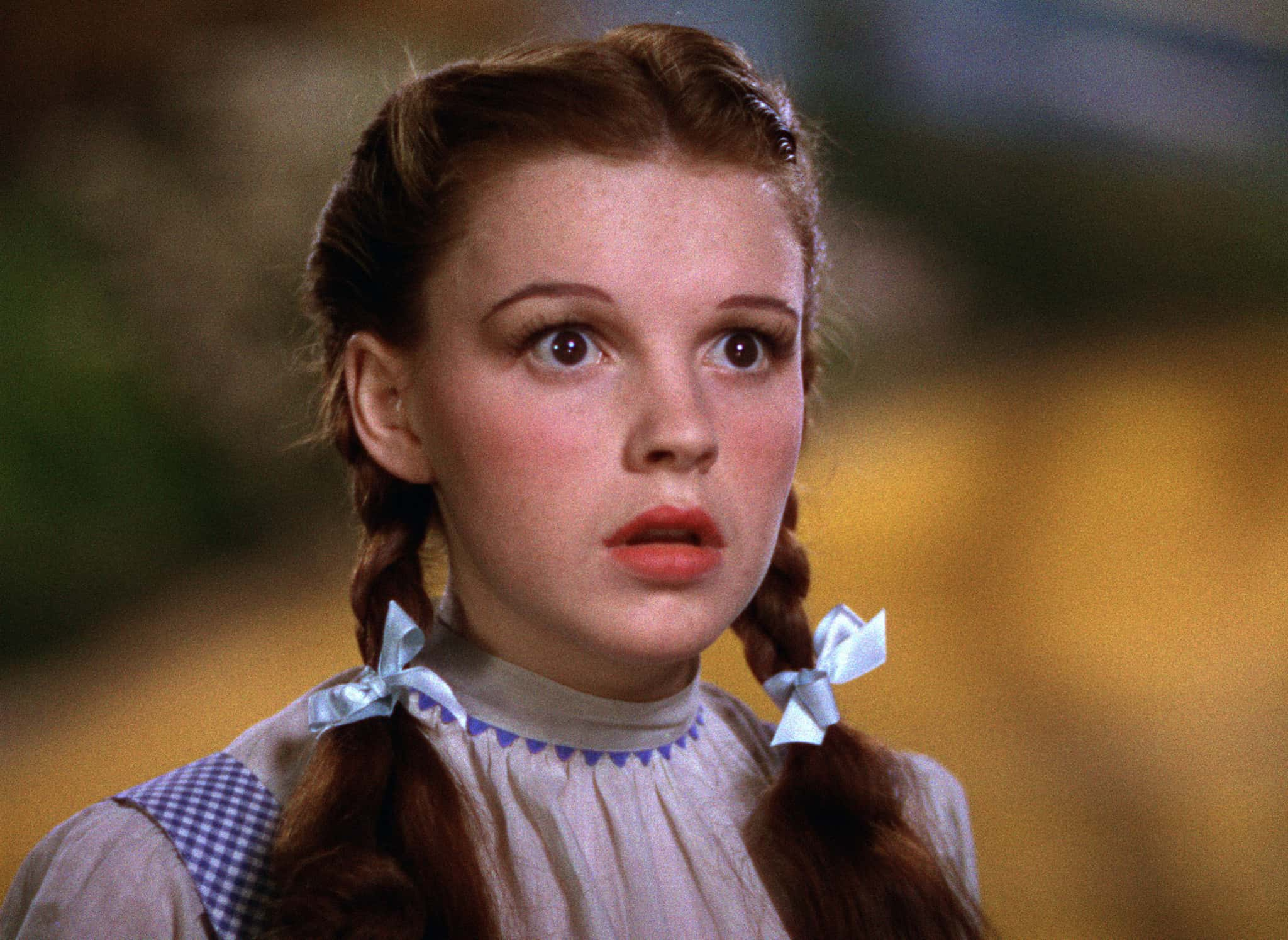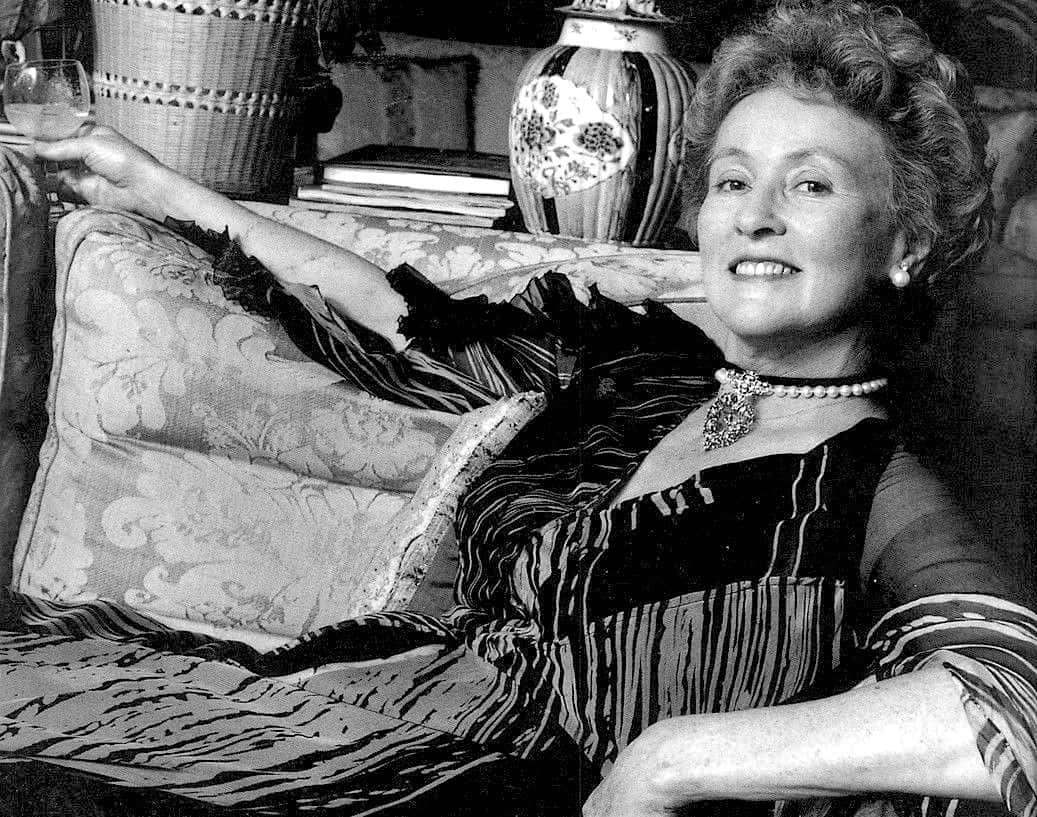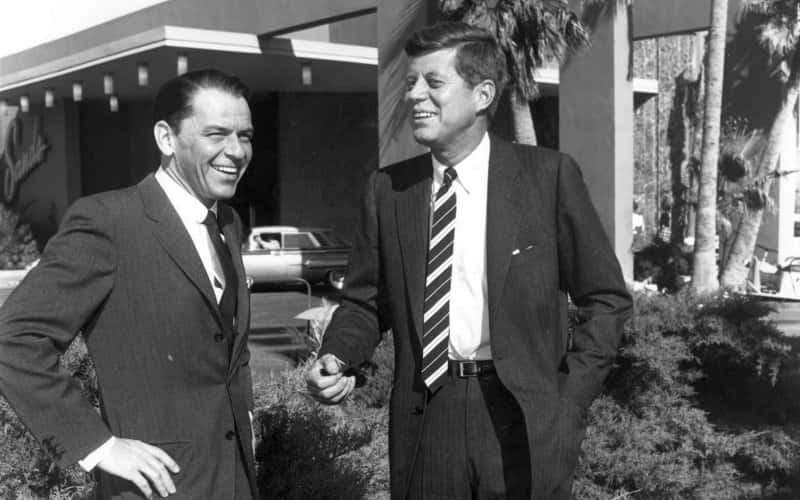Sure, we say we like Hollywood for the movies, but let's be honest, it's the scandals that we're all really hooked on. The rich and famous behaving badly. Maybe we like the drama, maybe we just like seeing glamorous stars getting taken down a peg. Whatever the reason, we can all rest assured that Hollywood will always have more and more scandals cooking up for us. This isn't a new phenomenon either—if we go back to the early days of Tinseltown, we'll find a world resplendent with deceit and intrigue. Don't believe me? Well, read on to discover 45 facts about Old Hollywood, in all of its scandalous glory.
1. Lived Fast, Died Young
We'd be remiss if we didn't include the infamously short life of renowned Hollywood bad boy James Dean. Aside from acting, Dean also had a passion for cars and driving as fast as possible. One thing led to another, and on the 30th of September, 1955, Dean was driving his Porsche 550 Spyder at high speed when he crashed into a car speeding in the opposite direction. He was 24 when he passed on, having only performed in three films, two of which hadn't even hit theatres yet. He would receive two posthumous Oscar nominations, a record that nobody is likely to beat—we hope.
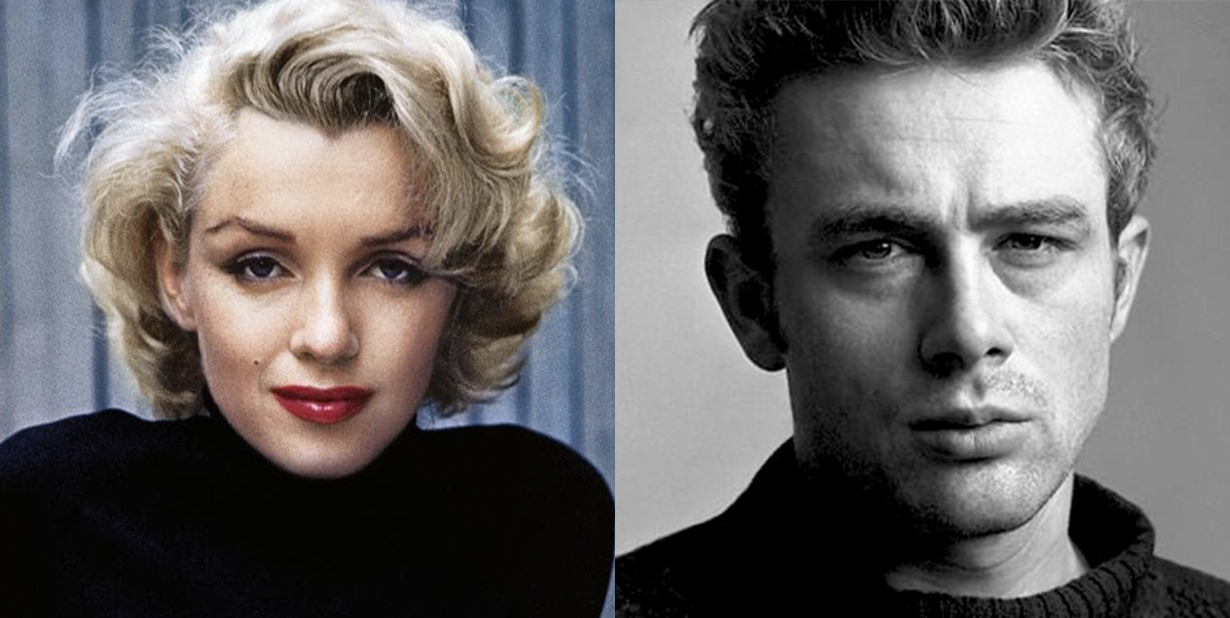
2. The Force Cannot Save This One
In one of the most infamous moments of foreshadowing in the history of American pop culture, James Dean met with renowned British actor Alec Guinness (aka the original Obi-Wan Kenobi, for anyone raised by Jar-Jar Binks) and took the moment to show off his new car. Guinness allegedly warned Dean that “If you get in that car, you will be found dead in it by this time next week". Guinness’ prediction proved horrifyingly accurate when Dean perished seven days later. It seems that Guinness was a Jedi before George Lucas had ever invented them.
3. The Brangelina of Their Day
As beloved as Frank Sinatra was during his time (inspiring the phrase Sinatramania before anyone had even heard of the Beatles), things took a turn when he infamously divorced his wife, Nancy, so he could marry renowned actress and femme fatale Ava Gardner, with whom he’d been having an affair. The press soundly criticized Sinatra’s actions, tarnishing his once-reasonably wholesome reputation permanently. Gardner and Sinatra also had a turbulent marriage, even though Gardner was responsible for saving his career by getting him the part in From Here to Eternity. However, they did remain friends for life after they split up, so at least they were cool about everything.
4. The Girl Can’t Help It
Back in the 1950s and 1960s, one woman decided that there was truly no such thing as bad press. Despite being a well-known actress, singer, and nightclub entertainer, Jayne Mansfield became notorious for the many publicity stunts she orchestrated which titillated and offended many different groups of people. Known for her impressive bust, Mansfield lost no opportunity to have a series of wardrobe malfunctions in public, showing off for the cameras. This was partly fueled by her rivalry with Marilyn Monroe, and also because she was eager to use all the publicity she could get. However, many eventually grew tired of the joke, and her stunts became steadily more negatively received. She’s often been credited with popularizing the bikini and also paving the way for people such as the Kardashians. Feel free to debate whether that’s a positive or negative legacy.
5. An Untimely End
In 1967, Jayne Mansfield got into a car with her attorney, her driver, and three of her children. It would be the last car ride of her life, as just before 2:30 AM, the car crashed into the rear of a tractor-trailer, having failed to notice the trailer slowing down. The three adults, including Mansfield, were instantly slain, while the sleeping children in the rear of the car suffered only minor injuries. One of those sleeping children was her three-year-old daughter, Mariska Hargitay, who most people know as Det. Olivia Benson on Law & Order: SVU. Rumors abounded that Mansfield had been decapitated by the crash, but these reports were only slightly exaggerated from the severe head trauma which had been cited as the cause of demise.
6. A Dark Origin Story
John Huston was a legendary filmmaker who wrote and directed some of the most acclaimed and influential American films of all time, including The Maltese Falcon and The African Queen. He also quickly gained a reputation as a hard-living, hard-drinking womanizer. Before he made his directorial debut, a young Huston was busy trying to make it as a screenwriter when he fatally struck dancer Tosca Roulien with his car. Although he was absolved of blame in court, he was so haunted by what had happened that he left Hollywood for five years, drifting through Europe until 1937. A rumor of the time, however, suggested that it was actually renowned actor Clark Gable who had accidentally hit Roulien, and Huston had been paid to take the fall.
7. Who’s Marrying for Love?
Old Hollywood, like the rest of Western civilization at the time, was very cruel towards people who identified as LGBTQ—well, at least, slightly crueler than in the 21st century. Some people rose to high positions during their careers, but they feared losing all their success and livelihood due to their non-hetero orientations. Therefore, the term "lavender wedding" came into being—a sham wedding with a partner which would serve purely to avoid suspicious talk.
8. Welcome to the Rock
One of the most famous examples of a famous Hollywood figure engaging in a lavender marriage to protect himself was Rock Hudson. As his bachelorhood endured despite being one of the most desirable movie stars of the 1950s, Hudson feared being driven out of Hollywood if his secret got out. His agent set his secretary up with Hudson. Their marriage resulted in, unsurprisingly, a bitter divorce.
9. What a Tramp
While he was busy capturing the hearts of the world with a prolific string of classic pictures, Charlie Chaplin was also a notorious womanizer. He claimed to have slept with over 2,000 women, and when he was asked what his ideal woman was like, he quipped, “I am not exactly in love with her, but she is entirely in love with me". Pretty gross there, Chap.
10. Hook ‘em While They’re Young
One thing that Charlie Chaplin’s pursuits had in common was their youth. He first met and engaged in a romance with Edna Purviance when she was 19. He later moved on to Mildred Harris, who was 16 when the 29-year-old first met her. He impregnated the teenaged Lita Grey (whom Chaplin had first become interested in when he’d met her as a twelve-year-old). Incidents like these continued until the 54-year old Chaplin married the 18-year old Oona O’Neill, with whom he finally did have a decent marriage, as well as eight children. So that’s a happy ending for...Chaplin, at least.
11. Master of Chauvinism
When it came time to film the horror film The Birds, it turns out that the real monster for lead actress Tippi Hedren was the film’s director, Alfred Hitchcock. Hitchcock famously became obsessed with Hedren, stalking her throughout the production and isolating her from the cast and crew while whispering nasty things at her. When she (big surprise) didn’t take kindly to this kind of treatment, Hitchcock sabotaged her career behind the scenes. Sadly, this kind of thing just happened in Old Hollywood, and there was not much for actresses like Hedren to do about it.
12. He Was Nothing but a Hound Dog
Despite being the King of Rock & Roll, Elvis Presley was incredibly insecure, especially where the bedroom was concerned. This meant that Presley only desired young girls who hadn’t had any intimate experience which could put pressure on himself. This led to him asking managers to round up girls who were 16 or younger, which in most states was a tad unlawful even then, unless, of course, you were a music and movie star like Presley.
13. Can’t Swordfight Your Way Out of This One
Long before Brad Pitt and Russell Crowe tried wearing sandals and fighting with swords, Errol Flynn was one of the biggest stars in Old Hollywood, known for his many romantic swashbuckling characters. However, this heroic image came crashing down around him when he was embroiled in a shocking trial where he was accused by two teenage girls of statutory assault (it didn’t help that he’d allegedly quipped that he liked his whiskey old and his women young). Even though he was acquitted, Flynn’s career never recovered from the scandal, and he slipped into alcoholism.
14. Not Even Front-Page Material!
Back in the day, the long-running series known as The Little Rascals followed a group of children who got up to endless shenanigans. One of the most famous characters of the series was Alfalfa, played initially by Carl Switzer. Unfortunately, like with many child actors, Switzer had a hard time when he was an adult. What made his story especially memorable, however, was the fact that in 1959, Moses Stiltz was apprehended for fatally shooting Switzer. He claimed that he’d been acting in self-defense, though rumors insisted that Stiltz had actually slain Switzer. The catch was, Switzer had become so disliked that his case was hurriedly closed so everyone could just move on. To add insult to injury, the news of Switzer’s demise was muted, as he’d managed to get slain on the day which also saw the passing of legendary director Cecil B. DeMille.
15. The Dangers of the Action Star
Before Dwayne Johnson, before Tom Cruise, before Steve McQueen, before even Tyrone Power, there was action star Wallace Reid. Reid made a career out of doing his own stunts, playing daredevils in movies like The Roaring Road. However, that all changed in 1919 when an accident on the set of The Valley of the Giant caused Reid to live with such pain that he eventually became addicted to morphine. This was back in the days when rehab was an unacceptable scandal, so the studio swept the issue under the rug and did all they could to hide Reid’s substance misuse. Finally, however, things got so bad that they relented and sent him to a sanitarium to kick his addiction. By this time, however, it was too little too late, as Reid’s withdrawal led to a heart attack, which ended his life.
16. No Justice in Old Hollywood
In 1937, 20-year-old actress Patricia Douglas attended a party which took place after MGM’s annual sales convention. As one would expect, the party took on the nature of a college frat party if the frats were all millionaires. At one point, sales executive David Ross and an accomplice assaulted Douglas after forcing her to get inebriated. When Douglas tried to press charges, MGM turned to their fixer, Eddie Mannix. Mannix ensured that the studio Ross worked for was never mentioned in the reports to suppress a scandal. Douglas’ reputation was questioned and ruined in the process. As for Mannix, he ended up getting a humorous portrayal in the film Hail Caesar!, which conveniently overlooked Mannix’s real-life involvement in destroying who knows how many people’s lives.
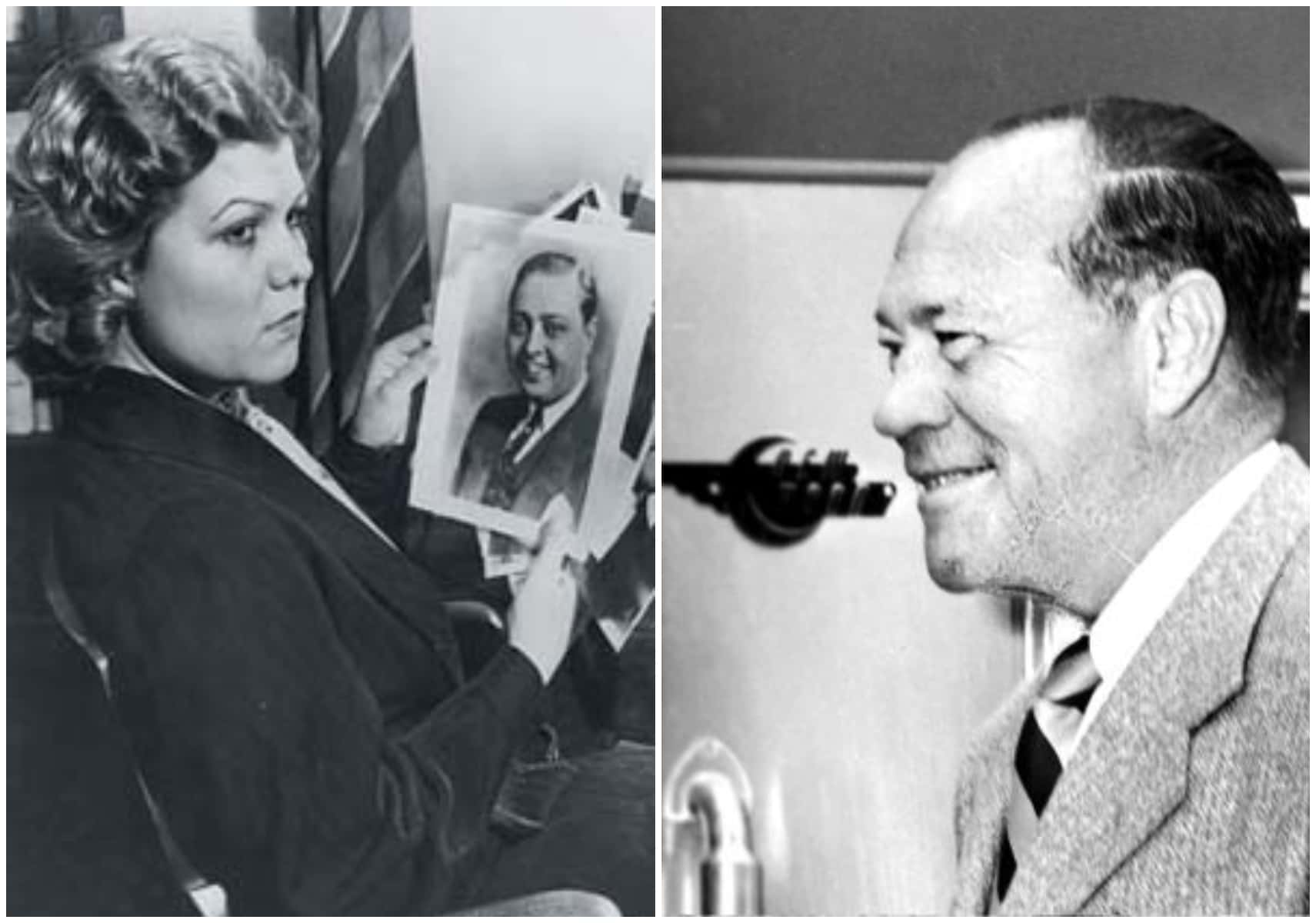
17. You Messed with the Wrong Guy
While we could list off the many documented instances of Frank Sinatra being a temperamental jerk to his valets, reporters, wives, and friends, we’ll let you look those up in your own time and instead, focus on a story where Sinatra faced a little comeuppance for once. Acting opposite Marlon Brando in a 1955 musical, Sinatra mocked Brando’s new method acting and even nicknamed Brando “Mumbles” for his manner of speech. Brando got his revenge by intentionally blowing takes in a scene where Sinatra’s character was eating cheesecake. This forced Sinatra to eat so much cheesecake that he had a furious breakdown where he threw his plate into the air while screaming at a presumably snickering Brando.
18. For Shame
Clara Bow paved the road for later bombshells like Marilyn Monroe and Elizabeth Taylor with films like It (no, there wasn’t a killer clown in this one). However, this position in Hollywood created a public which was eager to believe anything about this gorgeous starlet. Bow refused to… kneel to pressure (pun avoided) when a tabloid known as Coast Reporter threatened to spread ugly rumors about her if she didn’t pay them to stop. Stories soon spread that Bow was an abuser of drink and substances alike. She was said to have slept with men and women, taken part in a night of debauchery with the USC football team, and even performed acts with animals. These lies, coupled with the attempted blackmail, led to the publisher of Coast Reporter being apprehended and sentenced to an eight-year prison term, proving once and for all that you really can send someone to prison for spreading fake news.
19. A Straight Giveaway
The 1935 film The Call of the Wild starred Clark Gable and Loretta Young as co-stars. During their time together on the film, Young became impregnated by Gable—clearly, a situation that's ripe for scandal. Young ended up leaving the country for an "extended holiday," took the baby to an orphanage in California, then returned sometime later to "adopt" her biological child. She stuck by the adoption story, despite everyone realizing the truth due to the fact that her daughter had inherited her famous father’s distinctive ears.
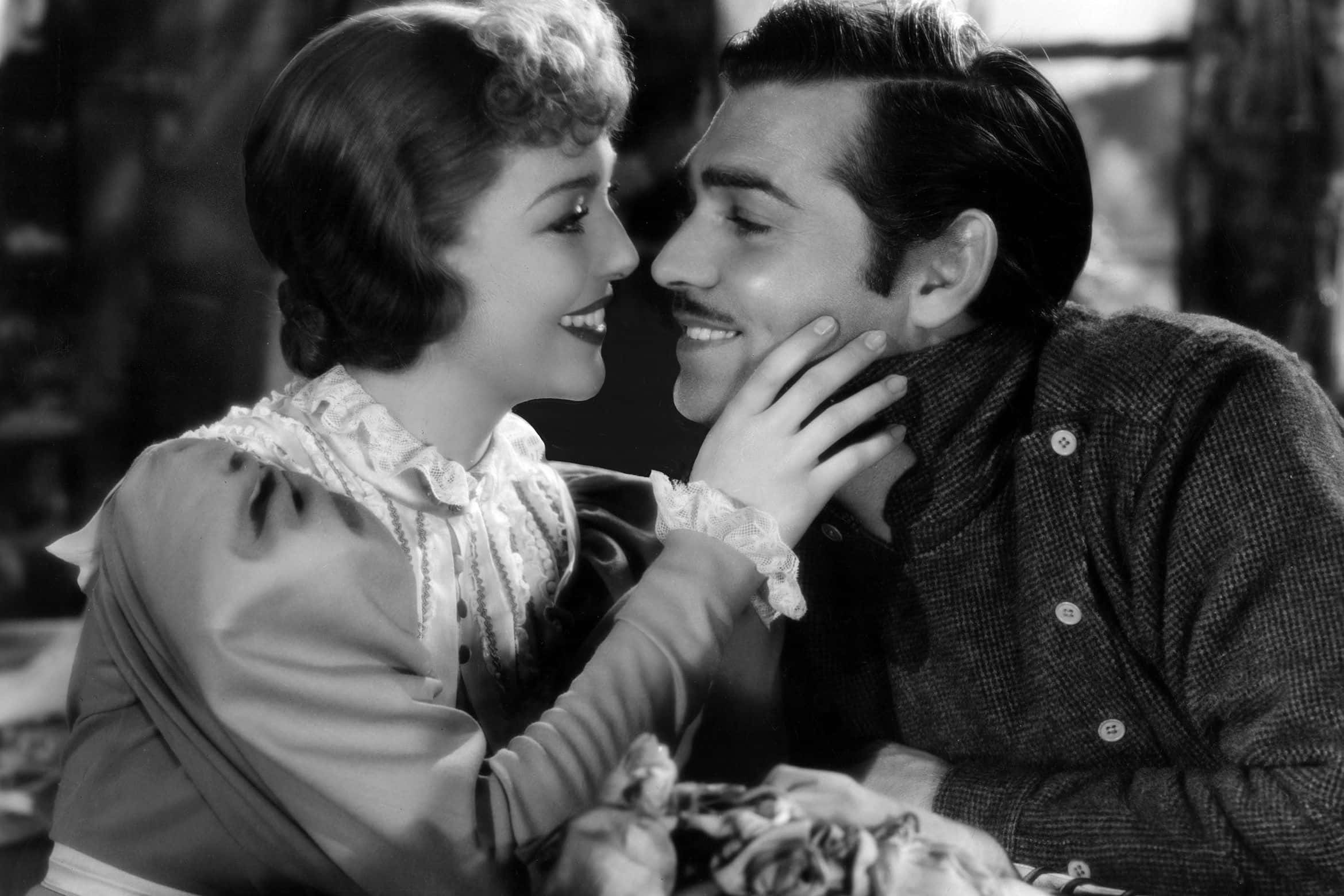
20. The Day the Clown Departed
Thelma Todd was a very talented comedic actress who worked alongside Laurel and Hardy, Buster Keaton, and the Marx Brothers, to name a few. However, her incredible career was tragically cut short in 1935 when she was found lifeless from carbon monoxide toxicity at the age of 30. The demise was ruled to be self-inflicted, though it flew in the face of her personal and professional lives both lacking a motive for self-harm. Rumors blamed her lover, Roland West, for slaying her, and even claimed that he’d confessed to the act on his deathbed. Regardless, it was an incredibly unfunny way for such a funny woman to go.
21. Sadly, He Wasn’t Faster Than a Speeding Bullet
Before Superman ever got his own movie, George Reeves played the legendary hero in an old television serial. However, Reeves became most known for being found lifeless in his Hollywood home, shot multiple times. The mystery of his demise shocked Hollywood for years and has never been solved.
22. Who Ended Reeves?
One persistent fact which people point to in the mystery of George Reeves’ demise is that he perished shortly after an affair with the wife of known Hollywood "fixer" Eddie Mannix—the kind of man who would arrange for shady things to be resolved behind closed doors. Making an enemy of such a man would undoubtedly have chilling consequences, as Reeves’ violent end could possibly prove. We will likely never know for sure.
23. No One Can Ever Know
Before she became one of the top leading ladies of her time, Joan Crawford allegedly performed in at least one pornographic film (and she may have been underage at the time). We’ll never know the truth of this matter, because every copy of the film was allegedly hunted down by Crawford’s later employer, MGM Studio. When Crawford parted ways with MGM in 1943, she paid them $50,000, an odd gesture in itself... unless one assumes it was a repayment for making her embarrassing (and damaging) film debut go away.
24. A Difficult Marriage
Laurel and Hardy were a double act in the early days of Classic Hollywood. Hardy was the tough guy and Laurel was his bumbling straight man. Off-screen and off-stage, however, Stan Laurel was a violent alcoholic, and this became known when he went through his third divorce. Vera Shuvalova claimed that her husband had threatened her with a firearm, and it was printed that her friends once had to intervene when Laurel dug a grave in their backyard while proclaiming that he was going to bury her alive (Good God…). The only thing which ultimately suppressed this scandal was the fact that Shuvalova was forbidden from talking about publishing anything about her marriage to Laurel when she signed their divorce agreement. Amazing how people have made stuff up to make scandals more enticing when we have something like this to work with.
25. Sisters Before Misters?
For those who don’t know who Elizabeth Taylor was, she was a bit like the Angelina Jolie of her time. She was an Oscar-nominated actress who starred in all kinds of films while she took on noble causes in her spare time. Like Jolie, she also went through famous relationship after famous relationship. The one that caused the biggest scandal, however, occurred when she lost her third husband to a plane crash in 1957, and she found comfort in the arms of his old friend, Eddie Fisher. The problem was that Fisher was married at the time… to Taylor’s good friend Debbie Reynolds. The fallout was naturally painful, though the two women managed to reconcile. As for Fisher and Taylor, their relationship lasted five years, so I guess it had been all worth it?
26. Don’t Cross Crawford
Harry Cohn was one of the big-time producers in Old Hollywood, actually serving as the inspiration for the movie mogul character Jack Woltz in The Godfather. He reigned supreme as the president of Columbia Pictures, controlling the careers of countless stars, including the Three Stooges themselves. Like many producers back in the day, Cohn was ruthless in demanding intimate favors from the actresses in his employ. A notable example of the contrary was Joan Crawford (yes, her again), who was immediately subjected to his advances when she signed a contract with Columbia Pictures. Crawford reportedly told Cohn to “keep it in [his] pants,” threatening that she was having lunch with his wife and children the next day. Sadly, she did not leave a horse head in his bed when he continued his womanizing ways.
27. What a Nice Guy
Cohn’s use of his power wasn’t limited to getting beautiful women to buy their careers from him with intimate favors. One of the actresses who had to put up with Cohn’s advances was Kim Novak, who also became involved in a relationship with famous singer Sammy Davis Jr. This combination of jealousy over a rival and his reaction to a white woman entering a relationship with a black man allegedly caused Cohn to hire mobsters to threaten Davis Jr. with broken legs and blindness if he didn’t marry a black woman immediately.
28. Good Riddance
When “King Cohn” finally passed on, his funeral was surprisingly well-attended. However, as Red Skelton famously joked, “It proves what Harry always said: give the public what they want, and they’ll come out for it". This might rank up there with one of the biggest burns in Hollywood history.
29. Good Old Walt
By the time filmmaker Leni Riefenstahl arrived in the United States in 1938, Nazi Germany had already launched its horrific assault on the Jewish population. Riefenstahl’s own documentary Triumph of the Will, which filmed and glorified a huge rally held by Adolf H at Nuremberg, had already come out and was well-known worldwide. Only three people were present to welcome Riefenstahl to the US, but none other than Walt Disney happened to be one of them. Disney gave Riefenstahl a personal three-hour tour of his lot, which has only added more fuel to the accusations of Disney’s alleged anti-Semitism. Whether he was or wasn’t, it’s telling that Disney was the only studio head to meet with Riefenstahl.
30. Where Are Those Child Labor Laws??
You’ll never watch The Wizard of Oz the same way again after you find out just how tortured Judy Garland’s life was thanks to her Hollywood career. When she was set to star as Dorothy in the aforementioned film, she was 15, and already the studio was pushing her to lose as much weight as possible. Garland suffered mentally from the producers’ torment, and then physically when she became addicted to diet pills. While this wasn’t exactly a full-blown scandal back in the day, it was considered extreme even for the time. Crew who worked on The Wizard of Oz reflected that they’d never seen such malice towards a youth before. Shame that they couldn’t have stepped in and tried to help things, though.
31. Despair During Bad Times
Many have been inspired by the iconic Hollywood sign which overlooks the movie-making capital of the United States, but when those inspirations fail, things can take a turn for the morbid. In 1932, Peg Entwistle, a struggling actress during the Great Depression, climbed atop the big "H" in the Hollywood sign, back in the days when it was actually the Hollywoodland sign, and tragically threw herself from it.
32. Too Ahead of the Army’s Time
Despite being involved in a tragedy (and possible cover-up) so early in his career, John Huston moved away from it immediately after his directing debut, The Maltese Falcon, became a wild success in 1941. He then joined the United States Army, serving as a filmmaker with the rank of captain. His three films from that time have become highly acclaimed combat pictures, though two of them were censored by the army for the touchy subject matter which Huston examined. One of them, Let There Be Light, focused on PTSD and the psychological damage found in veterans. It was censored until 1981, a full 35 years after it was made!
33. Talk About Passion
Serving his country wasn’t the only thing Huston was up to during WWII, however. Already into his second marriage, and before he himself went overseas, Huston began a fervent affair with Marietta Fitzgerald in New York while her husband was abroad. Allegedly, they once made love so fiercely that they broke a mutual friend’s bed. No doubt this led to an awkward apology the next morning!
34. No-one Suffers like the Beauty
The tragedy of Marilyn Monroe’s life is that she clearly had severe emotional problems that needed sorting, but she was trapped in a world where she was firmly tied to a pedestal made out of her sensual appeal. Small wonder that she went through a meltdown on Some Like it Hot. Her unprofessionalism on that film set has become the stuff of legends, with Monroe showing up hours late to the production and constantly flubbing her lines, which led to breakdowns on Monroe’s part. Her co-star, Tony Curtis, later quipped that if it hadn’t been for Monroe’s bra size, she would have been placed in a mental asylum, while director Billy Wilder was so infuriated by Monroe that he didn’t invite her to the wrap party when the film was finished, and when he was asked whether he’d work with her again, he joked that his doctors advised against it. Perhaps one or two of those doctors might have been spared to give Monroe the help that she needed.
35. Neither Pro-Life nor Pro-Choice
In Old Hollywood, when a big-time actress had a career playing the sensual symbol that all the men want to be with, the image might be spoiled if she got married or, God forbid, got pregnant and couldn’t perform. Film studios would apply serious pressure on such actresses to avoid marriage and even force them to get abortions if the stork scheduled an appointment.
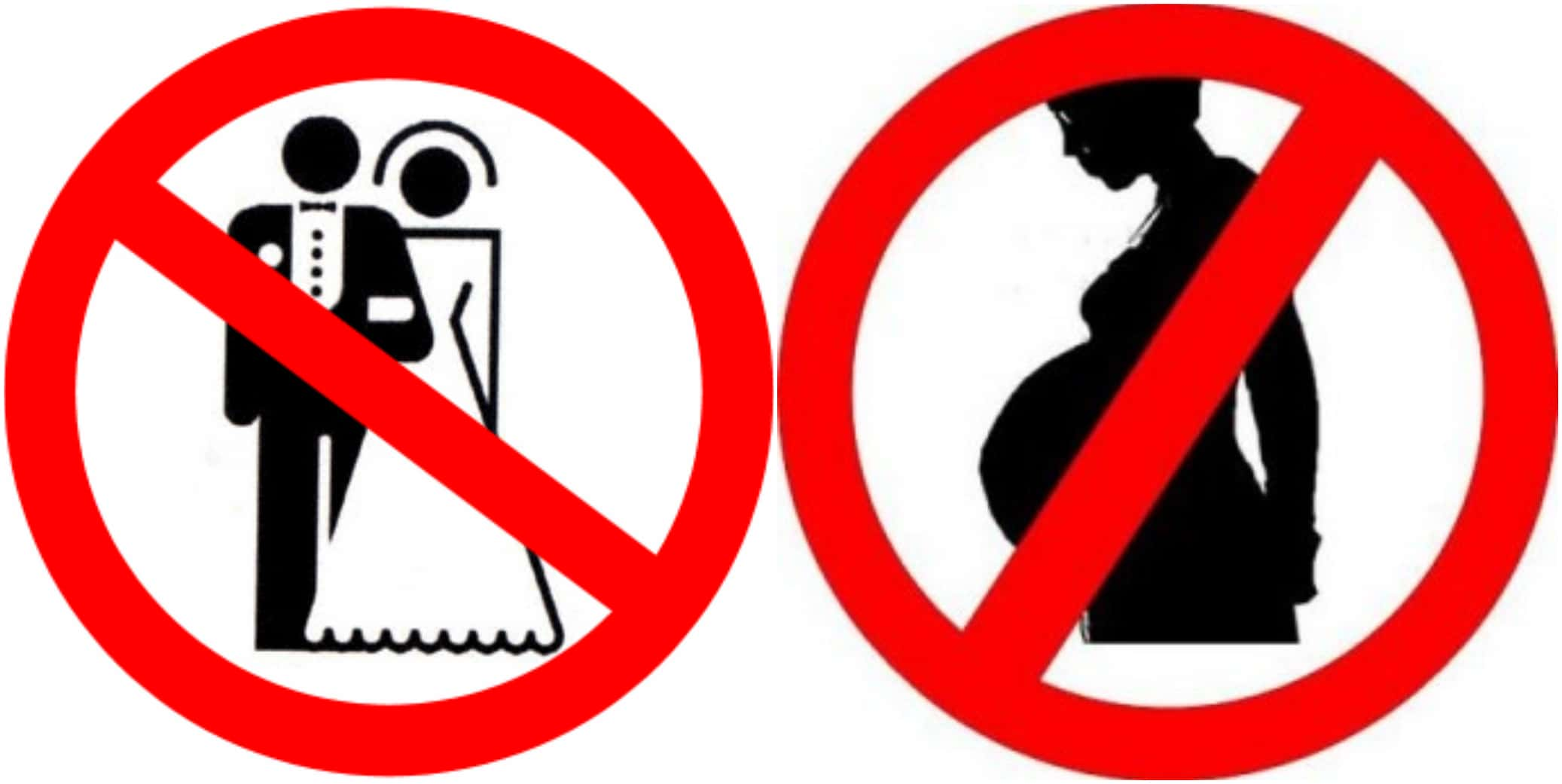
36. What a Woman!
Mae West was a woman leagues ahead of her time, and not just because she was, along with women like Clara Bow, among the first sensual symbols of Hollywood. West was challenging the status quo through her writing all the way back in the 1920s. Under a fake name, West wrote, directed, and starred in the 1926 Broadway play titled S*x. Despite strong sales, West drew the ire of religious groups, whose protests led to the authorities raiding the theatre and arresting the cast, including West herself.
37. Exploiting the Exploiters
When she was apprehended for corrupting the morals of America's youth with her play, Mae West was sentenced to ten days in prison, with the option of paying a fine instead of serving time. West, however, surprised everyone by serving her time in prison. Mindful of how this scandal would only draw further attention to herself, West decided to take advantage of the publicity. She built up her bad girl image by quipping that she wore her silk panties throughout her prison time (during which she’d dined with the warden and his wife).
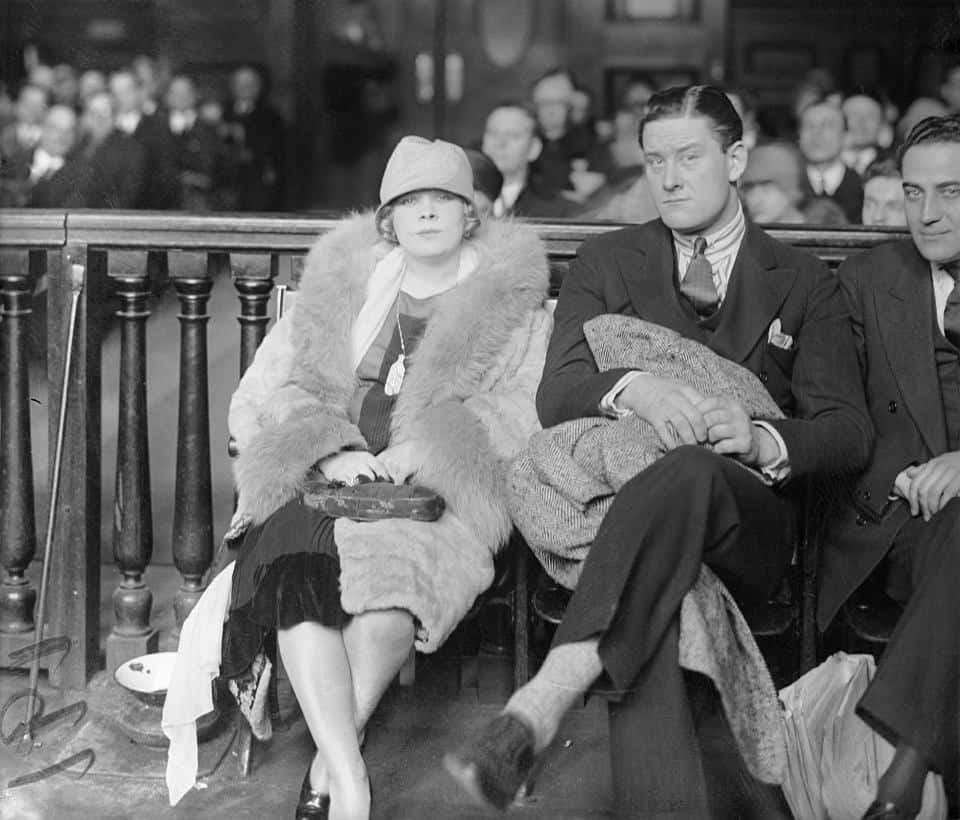 wyborcza
wyborcza
38. She’s Here, Get Used to It
If the moralists of the time thought that some days in prison would chasten Mae West, they were utterly mistaken. West’s next play was The Drag, a comedy-drama with LGBTQ themes. You can just imagine how many monocles popped at that news. The play wasn’t even allowed to be performed in New York due to widespread protests. West herself didn’t let it phase her, proudly proclaiming her support for LGBTQ rights by defying the censors of the time.
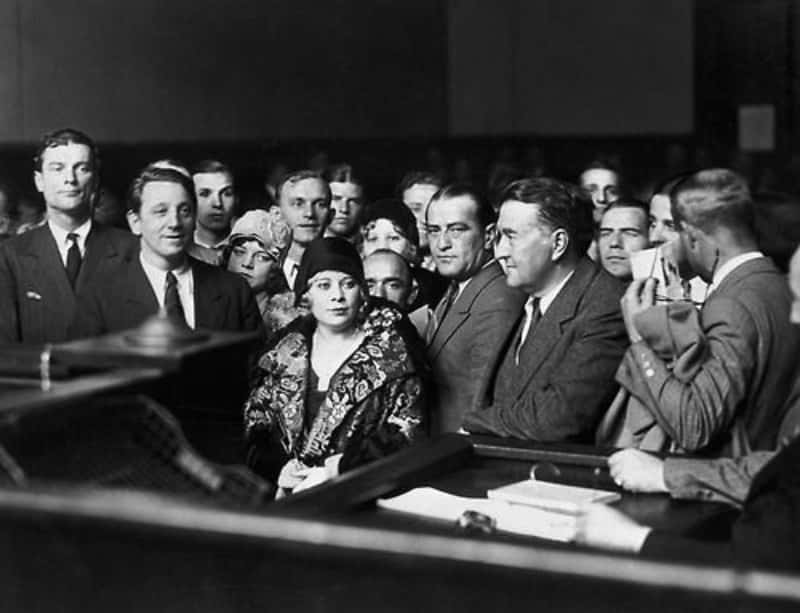 pinterest
pinterest
39. Romance is Different in Hollywood
Anyone who has seen Casablanca or Murder on the Orient Express (the first one) will know just how talented Ingrid Bergman was. In her own lifetime, she was hailed as a legendary actress, until she became better known for a scandal which shocked a society that was hooked on Bergman’s wholesome cinematic persona. The news came out that she had begun an affair with director Roberto Rossellini when both were married at the time. They ended up divorcing their spouses to become an item, partly because Bergman had become pregnant with Rossellini’s child. The pair would have three children together before divorcing in the 1950s. Despite the damage to her reputation, Bergman’s career endured, and she won another Academy Award later in her career.
40. Talk About a Young Offender
1958 bore witness to one of the biggest scandals ever to rock Old Hollywood. Johnny Stompanato, known mafioso and infamous boyfriend of renowned actress Lana Turner, was found fatally stabbed in Turner’s home. Turner’s daughter, 14-year old Cheryl Crane, confessed to stabbing Stompanato after he had hurt her mother in the midst of a vicious argument. The slaying was ruled to have been justified, proving once again that being in the Mafia doesn’t pay off in a court of law.
41. It Could Have Been Much Worse
As shocking as it was that Cheryl Crane had fatally stabbed Johnny Stompanato, a few rumors persisted that things had gone down differently than was claimed by those involved. The most common of which was that Lana Turner had actually been the one to stab her boyfriend, and her daughter only took the fall because the court would look more favorably on murder if it was a minor who did it. A more twisted rumor claimed that Turner hadn’t actually been threatened by Stompanato; she’d actually caught him in bed with her daughter! In her rage, she’d slain Stompanato and forced Crane to take the fall. Frankly, we’re doubtful that this version is true, and we really hope that it isn’t.
42. No Wonder We Never See Dorothy’s Parents
One of the many actresses who was pushed into getting an abortion by the studio system was Judy Garland (yes, her again). However, in her case, the pressure came not just from greedy film producers, but also from her own mother. In fact, it was her mother who arranged the abortion rather than the studio. And we thought Lindsay Lohan had had it rough…
43. The Rise and Fall of Montgomery Clift
Before May 12th, 1956, Montgomery Clift was one of the biggest stars of Hollywood. One of the original method actors, alongside Marlon Brando and James Dean, Clift chose his movie roles carefully, giving Oscar-nominated performances in the films From Here to Eternity, A Place in the Sun, and The Search. However, that all changed when Clift fell asleep behind the wheel of his car and crashed into a telephone pole just moments after leaving a party hosted by Elizabeth Taylor (with whom he’d acted and also dated for a time). Taylor herself allegedly had to pull a tooth out of Clift’s tongue because he was choking on it. Clift had to live with the lingering physical and mental pains for the rest of his life. To the surprise of nobody, he became addicted to booze and painkillers. Although his career still saw some bright spots, the remainder of his life after the accident was dubbed “the longest suicide in Hollywood history".
44. A Cursed Project
One of Clift’s last films was The Misfits, which was a commercial failure at the time, but which has since gotten a 100% rating on Rotten Tomatoes. It was directed by John Huston (told you he was a big deal), written by Arthur Miller, and starred Clift, Clark Gable, and Marilyn Monroe. With such a star-studded cast and crew at the wheel, you’d be amazed at how this well-made film destroyed the people who made it. Monroe and Miller’s relationship deteriorated, with Monroe overdosing on the set. She would later die barely a year after the film was finished. Gable succumbed to a heart attack a few days after filming, and it has been speculated that it was brought on due to the stress of making the film. Clift’s career fizzled out after just a couple more movies, and five years after The Misfits was made, Clift was told by a friend that it was airing that night on television. Clift hotly refused to watch it, which turned out to the final thing he would ever say, because he passed on from a heart attack that very night. Seems like the only one to get out of that film intact was Huston!
45. He Shot and Buried the Messenger
Frank Sinatra was one of the biggest musical stars of his time, and he also had a long film career as an actor and producer. Naturally, absolute power corrupts absolutely, and Sinatra’s arrogance and violent temper has been well documented, especially when he felt that he’d been slighted. Such was the case with President John F. Kennedy. Sinatra had campaigned vigorously with Kennedy and had reportedly been a wingman of sorts to assist in Kennedy’s notorious record for womanizing. However, when Kennedy won the election in 1960, he was advised to put some distance between Sinatra and himself, due to Sinatra’s alleged Mafia connections. Kennedy thus canceled a 1962 stay at Sinatra’s Palm Springs mansion, going to rival singer Bing Crosby’s house instead. Sinatra was so furious at the snub that he personally took a sledgehammer to the newly-made heliport that he’d made to accommodate the President and his entourage. Not only that, he refused to speak with Peter Lawford, the Rat Pack member who delivered the news for Kennedy, ever again (it didn’t help that Lawford was Kennedy’s brother-in-law).
Sources: 1, 2, 3, 4, 5, 6, 7, 8, 9, 10, 11, 12, 13, 14, 15, 16, 17, 18, 19, 20, 21, 22, 23, 24, 25

